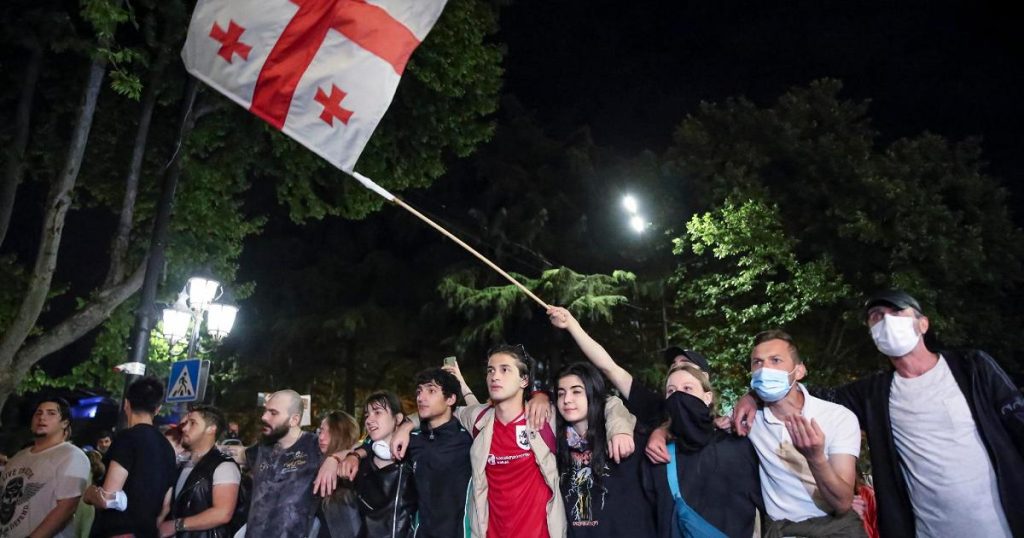The Georgian Parliament has suspended its work after an attempted invasion by pro-European protesters who were demonstrating against a bill on foreign influences being discussed in the legislative assembly; a law modeled after a similar measure adopted in Russia. The assembly reported this in a statement quoted by the Russian agency Tass, following clashes the previous evening in front of the Parliament in Tbilisi, which left eight people injured. Tens of thousands of people protested in the streets and squares of the Caucasus capital on May 1, waving Georgian and European Union flags. The Parliament gates were stormed, and police fired smoke bombs and used water cannons to disperse the crowd.
The protest, which has been ongoing for almost a month, erupted after the country’s legislative assembly attempted to pass the controversial bill, dubbed the “Russian law,” which Brussels believes would damage Tbilisi’s long-standing European aspirations. The bill passed the second reading in Parliament with 83 votes in favor and 23 against. The third reading is scheduled to take place in two weeks. The country has been rocked by mass anti-government demonstrations after the ruling party, Georgian Dream, reintroduced plans for the bill’s approval. Critics argue that the measure resembles repressive Russian legislation used to silence dissent and requires media and NGOs that receive at least 20 percent of their funding from abroad to register as entities “pursuing the interests of a foreign power.”
Ursula von der Leyen, the president of the European Commission, condemned the violence and urged Georgia to remain on the European path. “I am following the situation in Georgia with great concern and condemn the violence on the streets of Tbilisi,” she wrote. The protesters are demanding the resignation of Georgia’s Interior Minister Giorgi Gakharia, as well as the release of all individuals detained during the demonstrations. The European Parliament also echoed concerns about the proposed legislation, warning that it could have a serious impact on media freedom and the work of civil society organizations in Georgia.
The Georgian opposition has accused the ruling party of betraying the country’s pro-Western course and called for early parliamentary elections. They have also criticized the government for aligning itself too closely with Moscow. The opposition parties have pledged to continue their protest until their demands are met and the bill is withdrawn. The government has defended the legislation as necessary for national security and to protect against foreign interference in the country’s internal affairs. However, the ongoing protests and international condemnation have put pressure on the government to reconsider the bill and address the concerns of the demonstrators.
Despite calls for dialogue and a peaceful resolution to the crisis, tensions remain high in Georgia as protesters continue to gather outside the Parliament building. The government’s response to the demonstrations and the proposed legislation will be crucial in determining the future direction of the country and its relationship with the European Union. The events in Georgia have highlighted the challenges of balancing national security interests with democratic principles and the aspirations of the Georgian people for closer integration with Europe.


